Editor’s Note: The names Poppy and Star are fabricated to preserve student privacy and honor their concerns about sharing their experiences.
It has been seven months since Oct. 7, 2023, when Hamas attacked Israeli towns near the Gaza Strip, killing more than 1,200 civilians. The resulting war continues to devastate areas in both Gaza and Israel, and as bombs continue to drop, the death toll in Gaza has risen to over 36,067, according to the Gaza Ministry of Health. Israeli attacks have induced infrastructure damage to 73% of school buildings, 15 out of 35 hospitals, 83% of groundwater wells, 267 places of worship and more than half of the homes in Gaza.
The Oracle recently received an anonymous letter to the editor criticizing that our coverage of this conflict has consistently focused solely on Jewish perspectives. Although our policy is to not publish anonymous letters, we recognize the imbalance in our spotlighted perspectives and the impact it has on the school community. This article serves to repair this hole and highlight Palestinian perspectives at Archer, and in the future, we will continue to work to provide balanced coverage of all events.
Palestinian students comment on Archer’s support for Jewish and Palestinian identities
Two Palestinian Archer students sat down with The Oracle to share their experiences navigating their identity during the war at a school with a sizeable Jewish population. They asked to remain anonymous over concerns about the student body’s reaction, so we are using the names Poppy and Star to refer to them.
“Only my close friends know I’m Palestinian, but if the larger community knew, I don’t know how they would react,” Star said. “Especially at Archer, one of the reasons I want to stay anonymous is because I’m scared. I don’t feel comfortable with people knowing because of backlash. There are a lot of [social media] posts and conversations I’ve overheard that are very hateful.”
Following Oct. 7, Archer’s counseling services hosted affinity processing circles for students and faculty, and the Jewish Student Union presented about the war to all students.
Head of School Elizabeth English initially issued a statement of unity and support acknowledging the attack’s “emotional impact” and offering general support for all community members.
After pro-Israel community members expressed discontent with the lack of condemnation of Hamas’ actions, English issued a second statement saying Archer’s mission was to educate rather than make political statements. However, the statement also condemned Hamas and all human rights violations, including in Gaza. English issued a third statement Nov. 3 summarizing a meeting between Parents of Jewish Archer Students and the administration, writing, “that in the direct aftermath of the attacks, we had fallen short” and their plans to further support Jewish students. It ended by pledging to “avoid explicit political statements while also offering affirmative communication.”
Poppy said it is important to balance the two perspectives in creating a truthful historical narrative.
“I’m not saying all Jewish people have to support Israel, but the majority of people at Archer do,” Poppy said. “ I don’t think it’s quite fair to only discuss Israel because there are two sides to the story.”
In October and November, Archer’s history classes implemented lessons and discussions about the conflict and the history between Israel and Palestine. Star said although she appreciated the educational initiative, the content in her upper school class felt one-sided.
“The worksheet had two pages on antisemitism and one little section on Islamophobia,” Star said. “We watched one five-minute video on Islamophobia but spent two days on antisemitism, which are both big issues everywhere in the world. There’s a lot of resources they could have used, but it was very unbalanced.”
Working to combat misinformation in a crisis
Organizations committed to fostering trust between Palestinian and Israeli identity groups have boosted their programs during the war. Zahra Sakkejha is a Palestinian advisory board member at Tomorrow’s Women, a nonprofit training Israeli and Palestinian young women to be social justice advocates. Their flagship “Young Leader” program hosts 16 Israeli and Palestinian students on a retreat in New Mexico, using the compassionate listening methodology to help students understand other perspectives.
“Essentially, this is their first opportunity to meet somebody with a very different life experience, religion or political background,” Sakkejha said. “We teach them to see the other as human, and it’s a really transformative experience. We try to eliminate the imbalanced power dynamic as much as possible and it’s really inspiring because these girls end up being such close friends — some say they leave as sisters.”
Following the attack, many of the Tomorrow’s Women alumni were personally impacted by the war; a few of their Gaza Girls were killed. Sakkejha said, to acknowledge this “unprecedented horror,” they hosted uni-national meetings for trauma healing, and after a couple of months, began binational facilitated discussions.
These solutions are intended to combat an imbalance of information, which is heightened beyond the classroom. Without a controlled environment actively calling out fake news, real-world platforms from protests to social media apps are infused with politics and emotions. This can cause the spread of disinformation, and in some cases, become the basis of hate speech.
“It’s hard for our whole family to see hateful posters and bumper stickers around the city against Palestinian people. A lot of misinformation is being spread around, but it’s so opinionated that it doesn’t sound fake,” Star said. “People from Archer are posting things on their stories saying all Palestinians are terrorists, which is untrue, obviously — my family and I are not doing anything wrong.”
Star said that although Hamas’ attack may have seemed unprecedented, many are unaware of the history of the states’ conflict. Israel and Egypt have enforced a blockade on Gaza for the last 16 years, restricting imports and traveling. Both these outside pressures and Hamas’ leadership have left the amount of resources, as well as treatment of human rights, unsuitable for living.
Their conflict dates back to 1947 when the United Nations called for Palestine’s separation into Jewish and Arab states to provide a space for Jewish people following the Holocaust. Following this pledge, questions of Palestinian statehood and claim to Jerusalem arose. Some historians argue it originated earlier with the British Balfour Declaration, while others attribute it to a centuries-old claim to land.
“There’s been a clash between Palestine and Israel for over 75 years over land, and now people are thinking this is a new issue. This is incorrect — it’s a long-standing issue being brought to light,” Star said. “I want people to know that Palestinians are sitting there scared because they don’t know what’s going on. Most of them don’t have connections to Hamas — they’re just being attacked and their homes are being bombed. They’re real people who have lives and families that have been destroyed.”
This narrow scope of perspectives often results in news bias in the form of clickbait headlines or one-sided videos. Sakkejha said the solution to combating inflammatory news is to hold civil human conversations. She said staying close to your lived experiences can promote humanization within this dialogue.
“What we see in the news is never a true reflection of the hearts and minds of people,” Sakkejha said. “There are so many things distilled down to one talking point. But when you actually seek someone from the other side, not necessarily groups yelling at each other, but one-on-one — go for coffee, go for dinner, go for a walk in the park — you look somebody in the face, and there’s accountability. You cannot just spew whatever talking points you’ve learned to a human; it’s not going to get you anywhere. It’s just not acceptable to stay in a bubble anymore. You’ve got to challenge yourself; Israelis find Palestinians and [Jewish people] find Muslims.”
Tasneem Noor is the Program Director with NewGround, a Muslim-Jewish partnership that fostered empathy through activities and discourse for 17 years. Their high school program meets once a month for five hours, hosts weekend retreats and dedicates intensives for Muslim and Jewish students of many backgrounds to have difficult conversations about the complexities of the Israel-Hamas War. Noor said NewGround practices intentional listening to avoid the urge to change minds, and when arguments arise, they contemplate the definitions of the words they’re debating.
“The way we address misinformation within our space is to remember we’re not there for consensus-building,” Noor said. “No one has to convince you they’re ‘right’, so when you take that pressure off, it creates more openness to speak on your own merit. If someone does bring in something and someone else has a contradictory source, we hold space for them to share its effect. It becomes a way of opening perspectives and seeing through multiple lenses versus having to convince one or the other of which is the right lens. Typically while the other person is talking, you’re thinking, ‘How am I going to respond? But pause that internal dialogue for a moment and genuinely want to hear why this person’s experience is so different from yours. Don’t shy away from the difficult differences because when we ignore those, they just become the elephant in the room, and then these conversations become harder to have.”
Poppy said that since social media is a way to broadcast human stories, there is a benefit to carefully using it to learn. After discovering a source, she tries to recognize if it is biased toward Israel or Palestine and then validates it using multiple reputable sources. Ad Fontes Media’s interactive media bias chart is a helpful resource for evaluating the credibility of news sources.
“There’s obviously going to be some misinformation spread, and it’s hard to stop that,” Poppy said. “But if you cross-check your information enough, you should be good.”
Many stereotypes dehumanizing Palestinian Arabs stem from misinformation about the war and anti-Arab sentiments dating back to the September eleven attack. To validate Palestinian students, Noor said we must stray from generalizations and instead consume individual stories of Palestinian suffering, one of which being that of six-year-old girl Hind Rajab.
“It’s important to distinguish between Hamas and Palestinian, and to acknowledge that difference,” Noor said. “One of our students asked, ‘What if you had to kill 60 people to get to one Hamas terrorist?’ No one should have to ask that question, and it shouldn’t be difficult — but somehow it is. Some [Palestinians] shared they are doing their best to understand what happened on Oct. 7, with the ongoing trauma and hostages, but don’t feel that same care, curiosity and compassion being reciprocated back to them. Some [Jewish people] feel that way too — there is a sense that Oct. 7 barely happened, that they deserved that and that Israeli lives are less valuable. The hurt is in all directions, so looking out for human stories is really important.”
Their message to the Archer community
Moving forward, Poppy said she hopes the Archer community can research thoroughly to dive into the history of the conflict and recognize the suffering of both identity groups.
“I hope people at Archer open their minds and double-check the information they’re getting,” Poppy said. “I don’t think it’s fair that someone makes their decision based on one point of view. I’ve seen both sides because we’ve been fed a lot of what Israel is saying, and I’ve also done a lot of research about Gaza. But a lot of people aren’t listening to both sides of the story — they’re listening to the story that they want to believe is correct.”


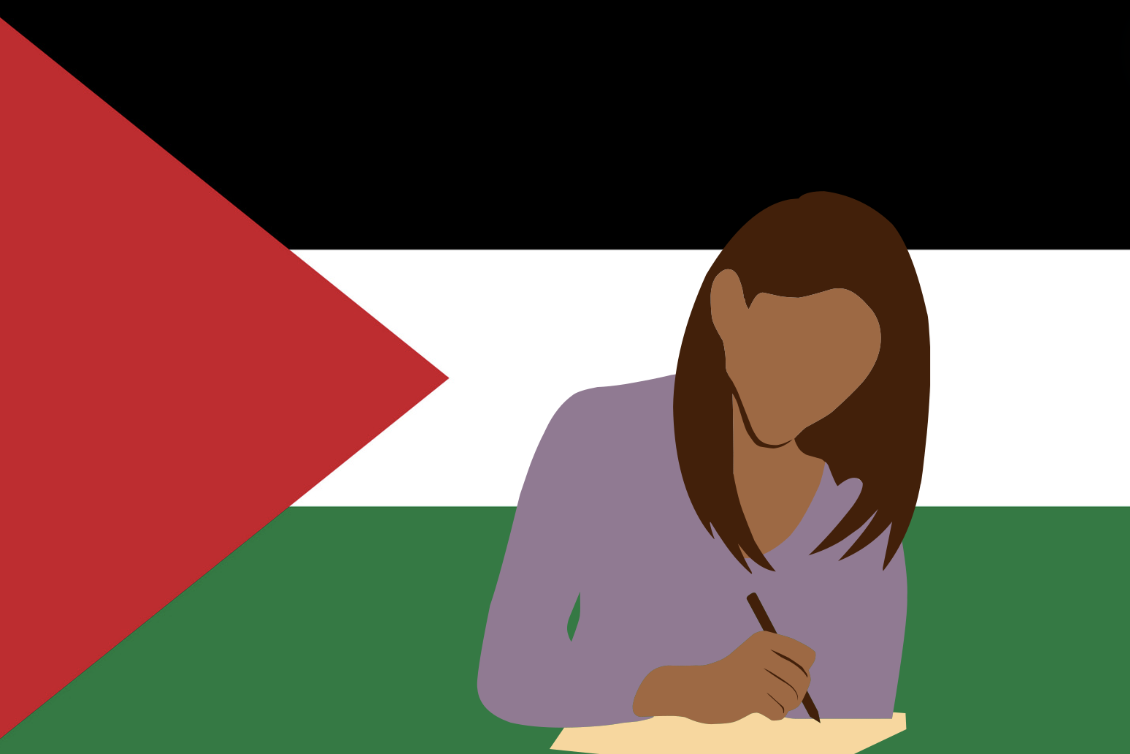
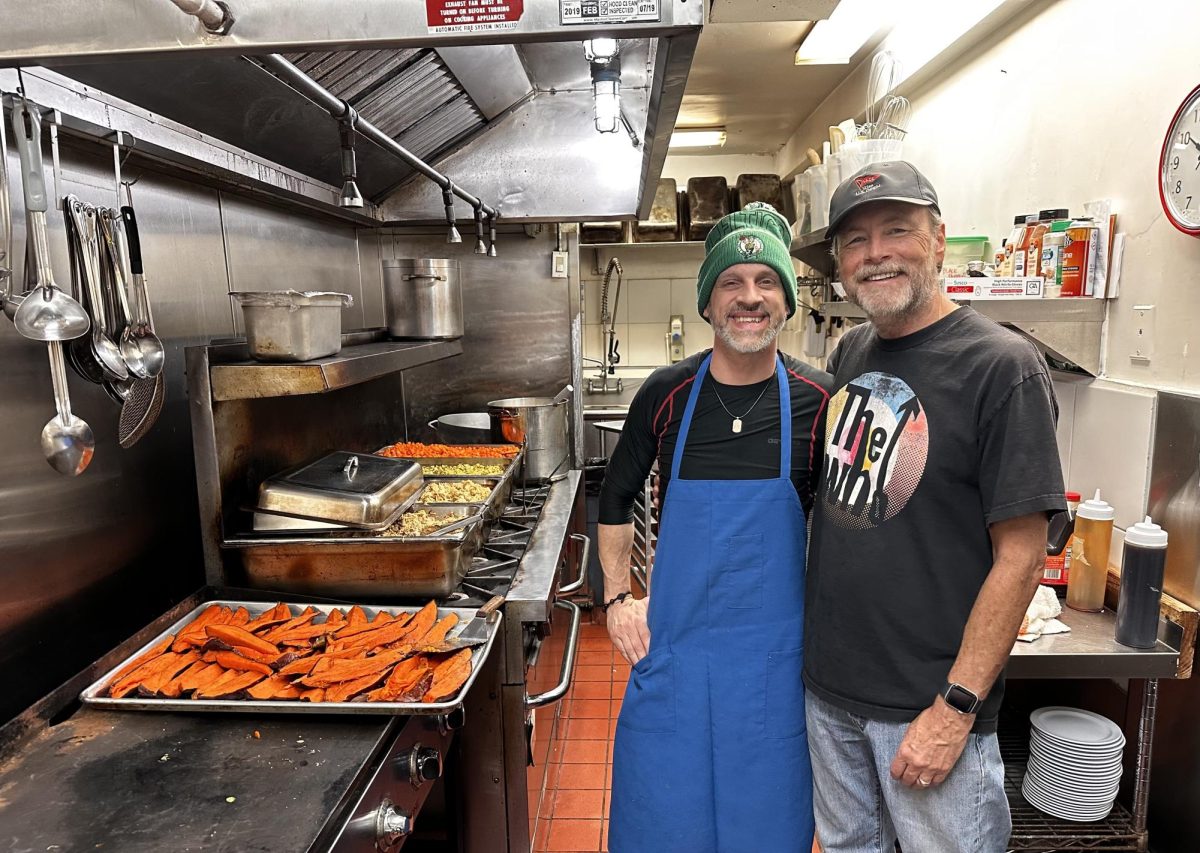
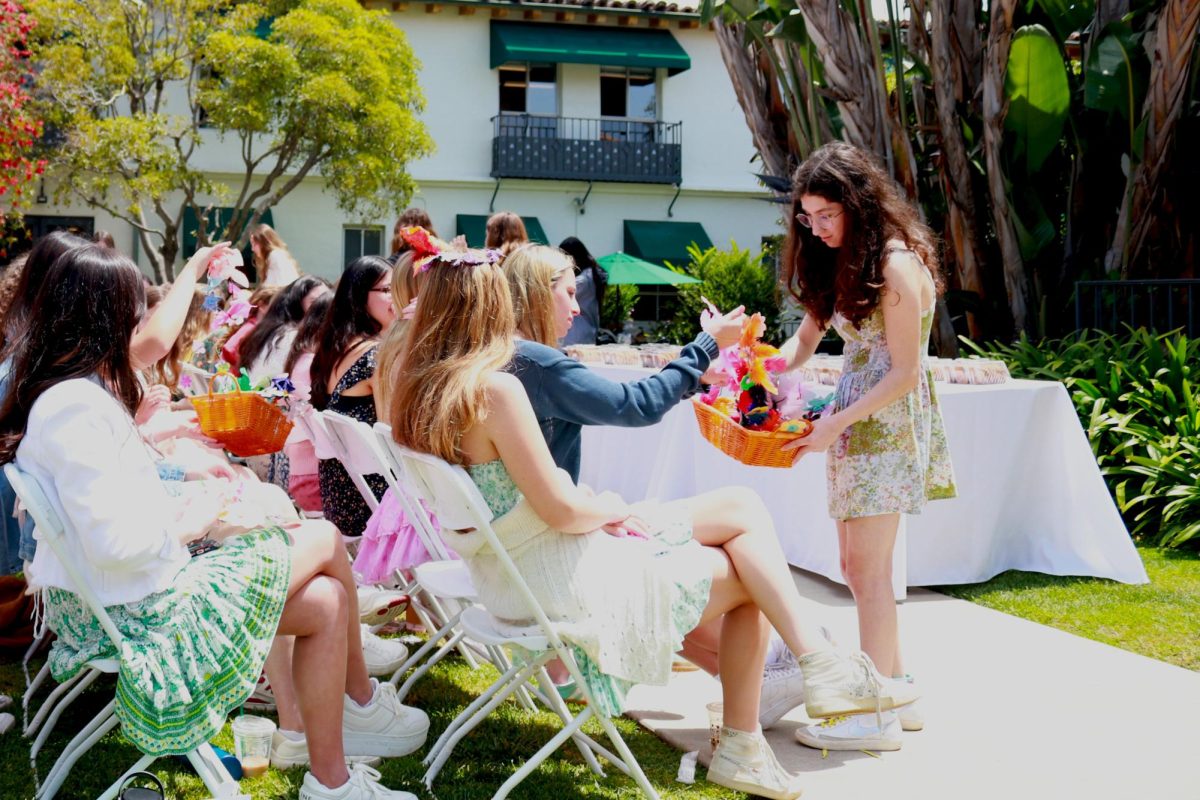
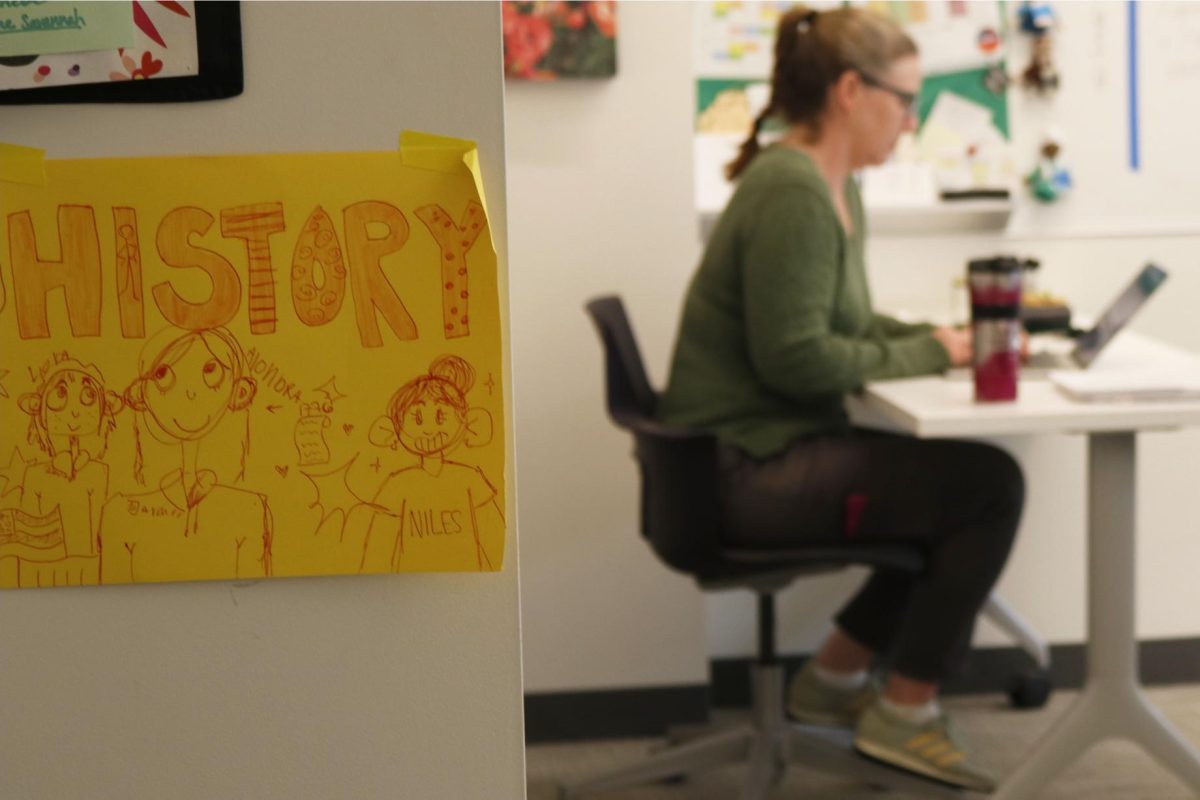


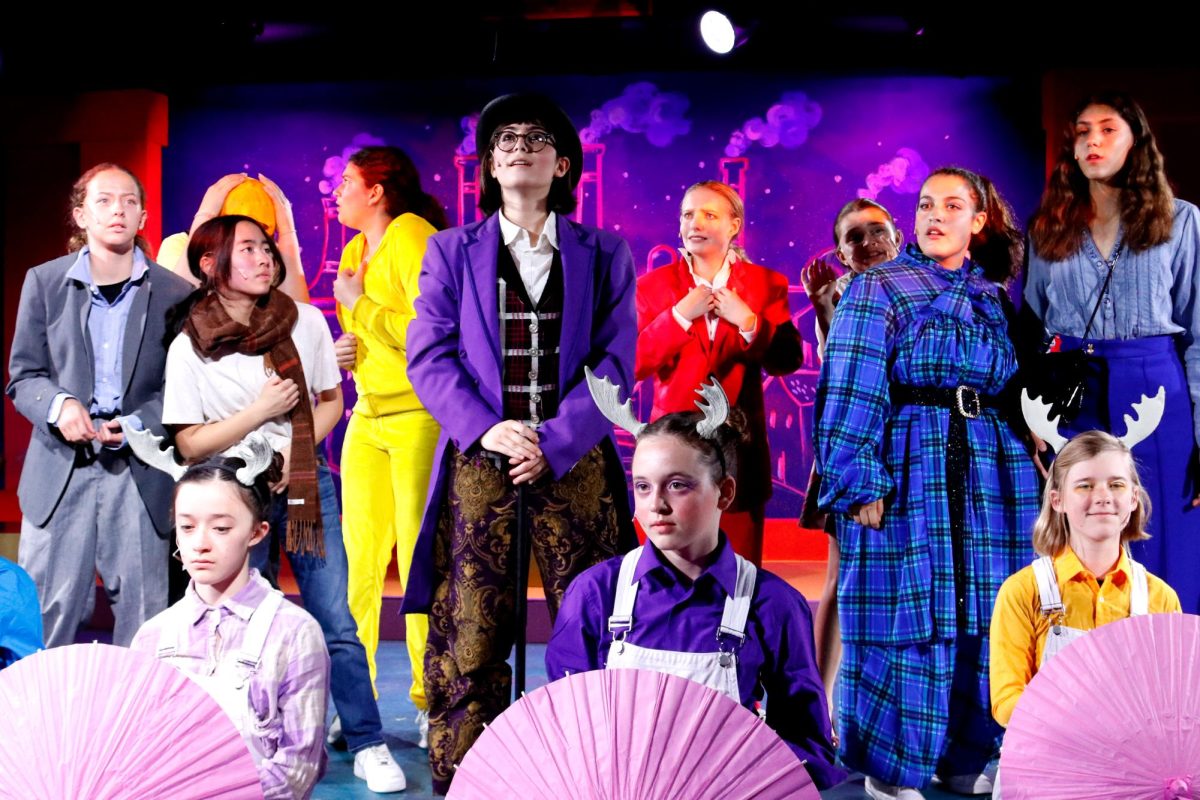
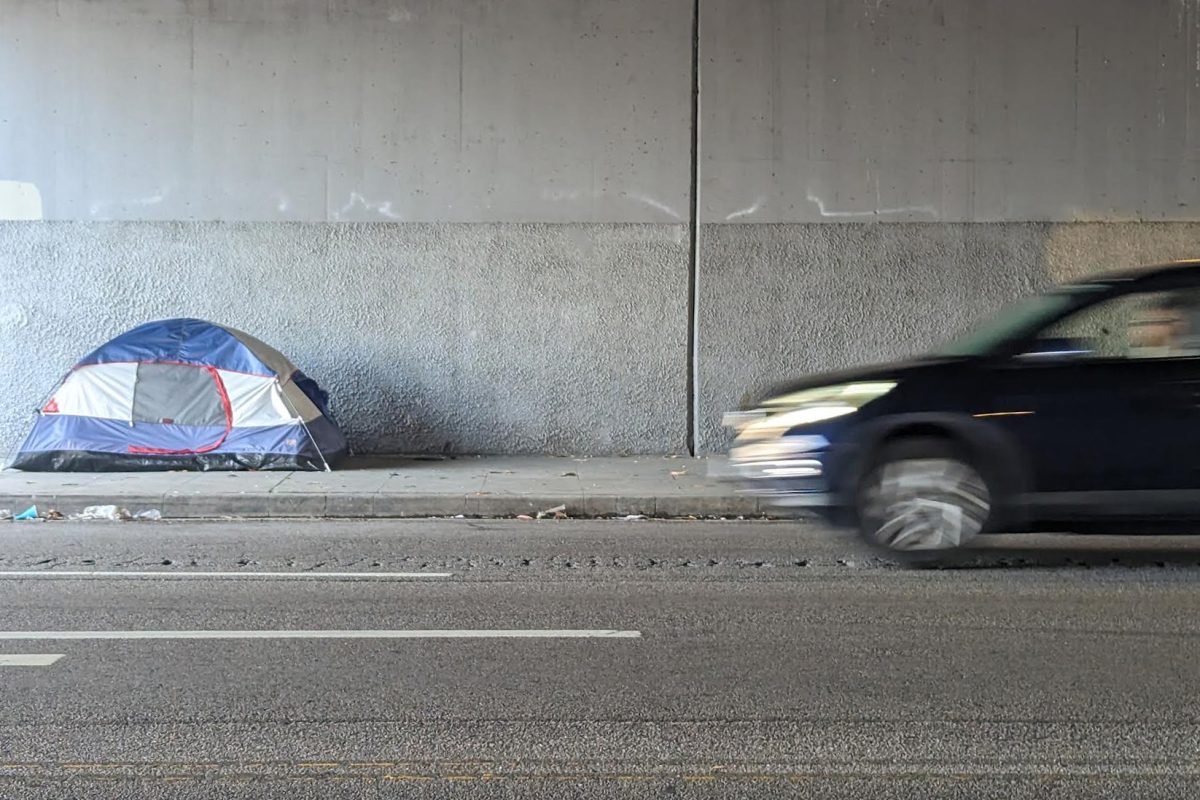
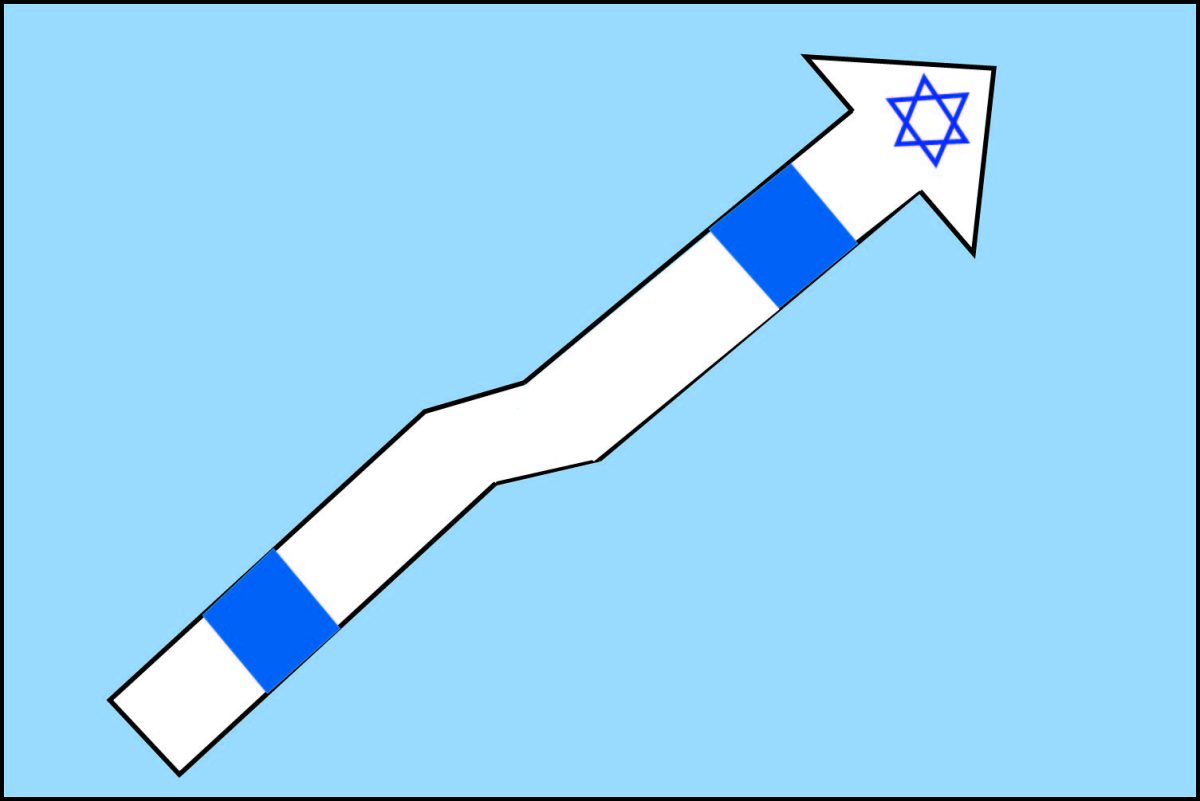
Maya Hernández • Jun 1, 2024 at 3:42 pm
I am amazed by this piece. It is so important to be thorough in our coverage, and you nailed it on the head with this! Incredible job Lucy